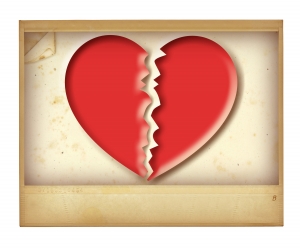Can you believe Gwyneth Paltrow and Chris Martin are breaking up? Me neither. I’d always assumed the golden girl and her uber-talented husband would, despite their celebrity status, somehow stay the course. Although I know many (most) celebrity couples who look The Part don’t last, that she had a rare set of stable parents and was committed to deflecting the spotlight with her Hub made me believe (hope? dream?) that the Paltrow/Martin fusion would remain en force. But alas, it is not to be. Standing in line at the store last week, I saw news of their “conscious uncoupling” splashed across the glossies, and I have to admit: it made me feel just a little bit better. About what? Why, my own life, of course.
Now, if you were to ask me, in person, why the latest celeb divorce makes me feel better about my life, I’d tell you that it’s because I’m tired of watching multibazillionaires with ridiculously decadent lifestyles pose as “experts” on all things parenting, food, fashion, and politics. I’d tell you how irksome it is to read about their organic, holistic parenting that’s only afforded them by the grace of an inflated paycheck. I’d tell you that I knew it–I knew they weren’t that perfect, or even very happy, all along. (Because who, amidst such wealth and fame, could be? Sheesh.)
And upon telling you all this, what I’d really mean, of course, is: I’m jealous. Because isn’t this life basically a competition, with the Paltrows of the world winning? There’s only so much room at the top, so when a Paltrow-esque figure falls, the rest of us naturally move up a notch. And nothing’s so delicious as watching royalty fall from their thrones into the laps of us commoners. Say what you will about the French Revolution, but I can kinda relate to those guys. (Okay, so may the guillotine stuff was a little over the top. But you get it.)
We all love to hate celebrities, and I think that’s just fine. And truthfully, I really don’t care much about the Paltrows, or the Martins, or Apple or Peach or Pear or whoever their kids are. Honest. But after walking away from that silly magazine with a skip in my step, I had to ask myself: what put it there? And if the misfortune of someone so far removed from me delivers such a mood boost, what will the misfortune of someone close to me do? In short: why do we feel just a little bit better when someone else feels just a little bit worse?
The mindset seems to especially work upwards. When a perpetually downtrodden friend comes to us with troubles and worry, we empathize, we sympathize, we genuinely want to help her. But when we witness the problems of someone who always seems to travel light and fast, the sympathy (though we’d never admit it) may not be so sincere. Why? Because, I’m telling you, there’s only so much room at the top. So when my “perfect” friend falls, I immediately move up a notch. It’s easy to be magnanimous when you’re looking down; you’ve got nothing to lose. Your position “above” the person you’re looking down on is simply reinforced by their woeful state. But when you’re asked to empathize with someone above you–well, that’s when things get dicey. They already have everything you want; why should they have your pity as well?
This is where some painful self-examination comes in. I’ve always thought of myself as “nice,” but as I get older, I realize: Nice is the easy part. Nice just means keeping your head down and getting along with everybody. What I ask myself now, is: am I compassionate? Truly compassionate, to everyone—those “ahead” of me, those “behind” me, those beyond me? Do I tell myself that “love one another” really means “love those who aren’t a threat to me?” Can I reign in my (secret) jealousy long enough to look at someone as a struggling, tangled person, and not just the sum total of her life’s good luck? Can I see a woman I envy as a girl, like me, with an insecure heart and an unsettled mind and regrets and worries and embarrassments? That though she seems to be lapping me in this life we’ve deemed a “race,” we’re both running it with the same hard and heavy baggage? Can I see that chance or genetics—so presumably critical to our varying life stati–are merely peripheral distractions from the commonality of the journey?
I guess we’re kind of like cars on the freeway; speeding up, slowing down, and yes, sometimes passing each other. But we’re all trying to reach our destination; we’re just doing it with different speeds and styles. Your car may be nicer than mine, but the point is: we’re both in a car. And when you pull over your gorgeous, decked out SUV due to engine trouble, do you deserve my pulling over my minivan to help you? Or is my help reserved only for those in a crummier minivan than I’m in? After all, your superior car is already an insult to me. So why should I help you?
The questions are rhetorical, but were nonetheless buzzing through my mind as I stuffed the magazine back into the stand, crumpling poor Gwyneth’s face in the process. Walking to said minivan, I confess that I could still stir little pity for the estranged couple from afar. I did, however, feel grateful to them. Not just for making my petty and pathetic self feel better that day, but for making me aware that I am, in fact, a petty and pathetic self. Armed with that awareness, maybe I can now do something about it.
Hmm. Guess you can learn something from lustrous checkstand literature–and for just $4.99! (Or, in my case, for free. The line was long, and I call it a “perusal.” Just go with it.)
